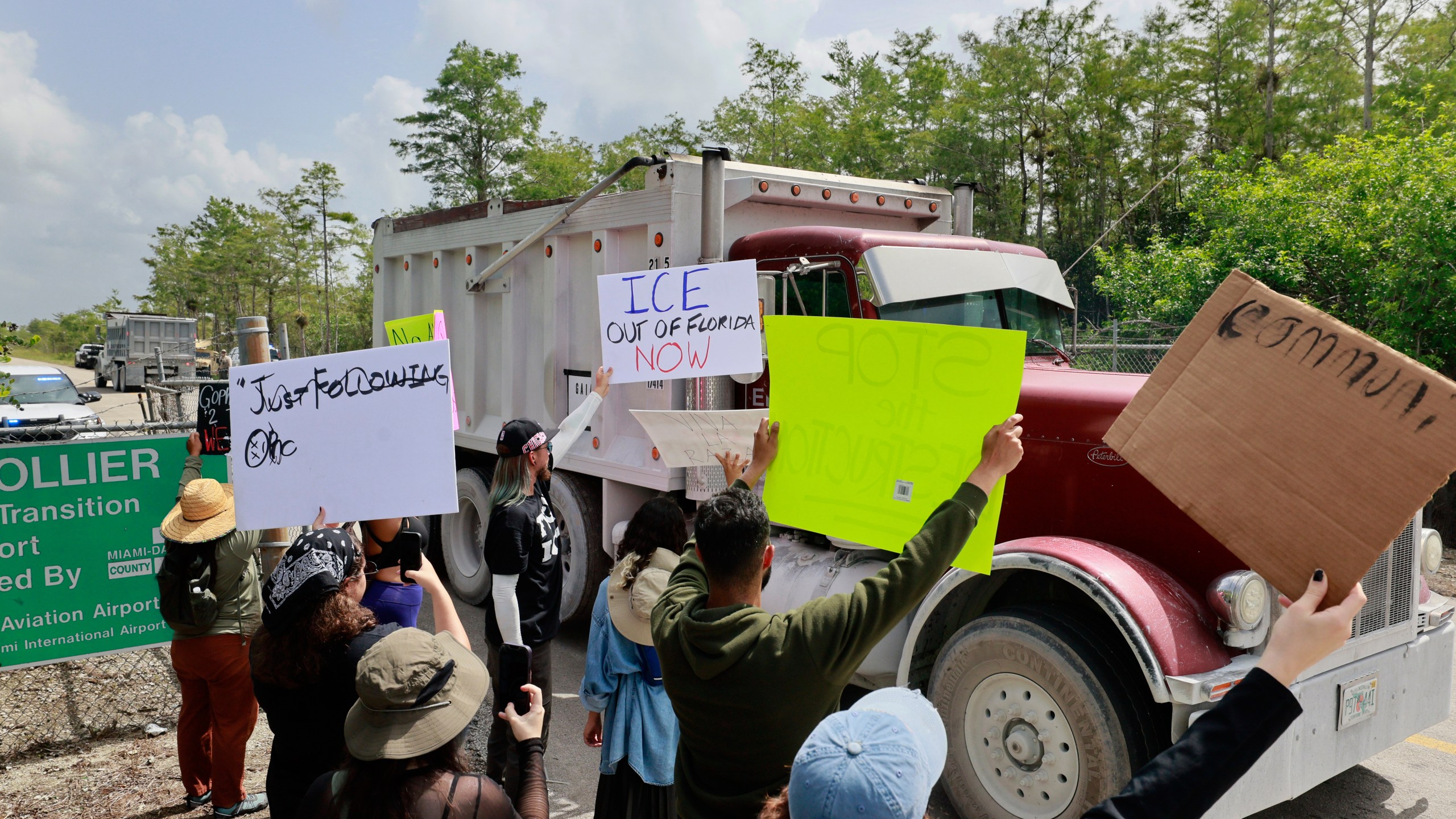Bipartisan Resistance Emerges Against Alligator Alcatraz Detention Center
The recent establishment of Alligator Alcatraz, a new immigrant detention center, has sparked both a proud reaction from MAGA supporters and strong disapproval from a surprisingly diverse bipartisan population in South Florida. The controversial land, where the detention center has swiftly been constructed under Governor Ron DeSantis’ administration, has been a hot topic since the 1960s. The site was initially intended to be the world’s largest jetport paving the way for a thriving city in the heart of the Everglades.
A unique medley of individuals including bird enthusiasts, players from the hunting community, indigenous tribes, working-class plumbers and Republican advisers formed an unusual alliance. This alliance found themselves at loggerheads with formidable entities like the Dade County Port Authority, the Federal Aviation Administration, the Florida state government, the air transport industry, and eager commercial chambers. This marked the start of an intense struggle over the proposed jetport.
The consequential contention over the jetport played a pivotal role in establishing the Big Cypress National Preserve. It also ended up molding the foundation of the modern environmental movement. The wide-ranging disapproval experienced in the 1960s finds an echo in the present-day protests over the same plot of land.
Jack Davis, a historian hailing from the University of Florida who has dedicated his research efforts to the history of the state, has written in-depth about this controversial struggle in his 2009 biography ‘An Everglades Providence: Marjory Stoneman Douglas and the American Environmental Century’, of the environmental activist Marjory Stoneman Douglas. Davis penned the Port Authority director Alan Stewart’s vision of a flourishing industrial center developing around the jetport and the city of Miami expanding to meet it.
The underlying assumption was that development in any form would inherently bring benefits to the region. The arguments for safeguarding the only Everglades in the world and protecting the region’s water supply weren’t in the calculation. Port Authority and Federal Aviation Administration neglected to liaise with the national park when finalizing the site for the jetport, despite it being upstream from the park and having potential to pollute or dehydrate it.
Joe Browder, a late journalist, was known as a ‘tenacious bulldog’ and a ‘brash militant.’ His ferocity became indispensable in the battle that ensued, as he assembled an eccentric team of conservation-minded individuals, forever altering the trajectory of South Florida’s destiny.
Work on the jetport commenced in 1968. Governor DeSantis defines the issue of illegal immigration as a crisis that necessitates an immediate response, according to political science professor Aubrey Jewett from the University of Central Florida. Faced with a dead-end situation, the Port Authority had no choice but to back down.
Two years post the relinquishing by the Port Authority, the Big Cypress National Preserve was officially established and the broader Everglades system as we know it today was conserved. The era was one of innovation for environmental laws in the United States.
The Jetport study became an archetype for federal requirements, as per Davis, and around the same time, the newly incorporated Environmental Protection Agency started the enforcement of the also recently established Clean Air Act. According to Jewett, this period marked the defining end of a Florida that prioritized development above everything else.
Jewett observed that the foundation of America’s environmental protection largely came into existence in the 1960s and 1970s, but it was a far from easy journey, filled with numerous political clashes. The fight against the proposed jetport was undoubtedly one of these battles and its outcome significantly changed the face of South Florida.
Governor DeSantis has criticized the protests over Alligator Alcatraz, labeling them as politically motivated nonsense. He brushed aside environmental objections, stating that there would be no impact, and suggested that those in opposition were simply left-leaning individuals using the Everglades as a cover for their disagreement on immigration enforcement.
Adams, a veteran from the jetport debacle, shared lessons from his experience. His advice included the resilience needed in such battles – to keep fighting and not give up. He prompted others to actively get involved with issues they were passionate about rather than merely complain from the sidelines.
His parting message was clear: without active citizen engagement, society would be vulnerable to being overwhelmed. Consequently, remaining informed and vocal against issues perceived as unjust becomes more than a personal responsibility, it is a requisite for maintaining the balance and integrity of the community. This resistance was witnessed historically during newspaper revelations, and in today’s world, continues to be the driving force behind shaping our communities.

